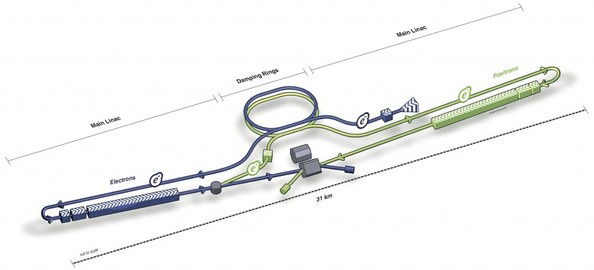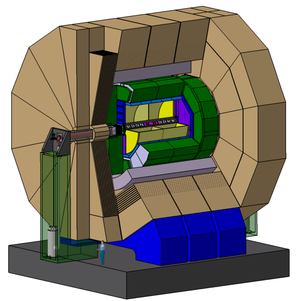ILD Optimisation
What Are We Doing Here?
The next big project in particle physics after the
LHC
is supposed to be the International Linear Collider (ILC) (see Figure 1). This machine is a linear electron positron
collider which will reach energies up to 1 TeV
and will run a scientific programme which is complementary to the one of the LHC.
Currently, this project is in its planning phase and much development work is being done
all over the world.
Besides the work on the accelerator, this work includes research and development for two
different detector concepts, which are in their planning status. The
FLC group at DESY is involved in the R&D work
for the International Large Detector (ILD).
The ILD Optimisation group is concerned with optimizing the overall design of the detector and important beam parameters in view of the physics requirements. This involves both fast and detailed simulations of the ILD detector concept, using the GEANT4-based program Mokka, followed by a digitization and a reconstruction step performed within the Marlin framework, as well as analyses of different physics processes, where the group currently concentrates on Higgs, SUSY and Dark Matter events.
The Detailed Baseline Design of the ILD detector concept has been published in June 2013 in the Detector Volume of the ILC Technical Design Report.



